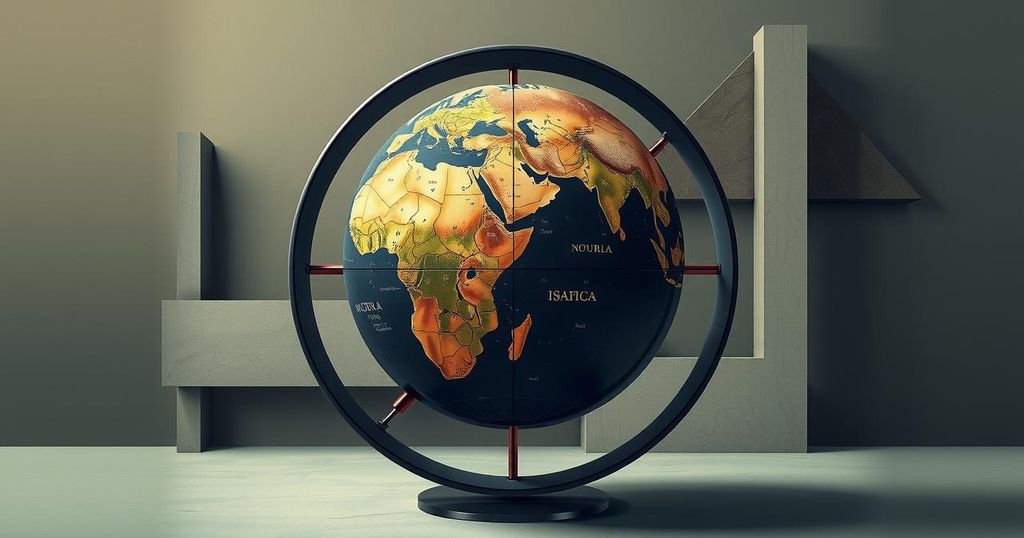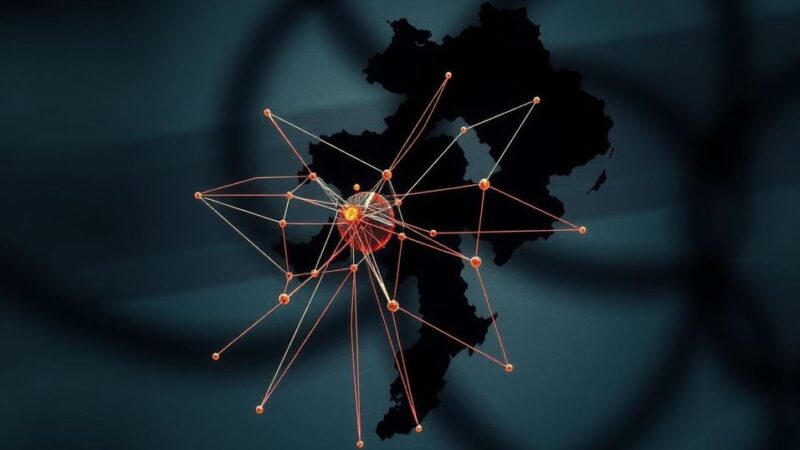At the G20 foreign ministers meeting in South Africa, President Cyril Ramaphosa emphasized the need for multilateral cooperation to tackle global challenges. Key U.S. officials, including Secretary of State Marco Rubio, boycotted the meeting, signaling strained relations under the Trump administration. South Africa, representing developing nations in discussions with major powers, is leading the G20 until late 2025.
President Cyril Ramaphosa of South Africa addressed G20 foreign ministers, emphasizing the necessity of multilateralism and adherence to international law to address global crises. His remarks occurred amidst concerns regarding the United States’ “America First” approach, which led Secretary of State Marco Rubio to boycott the meeting and Treasury Secretary Scott Bessent to decline attendance at an impending gathering of G20 finance ministers.
Rubio stated that he would not support what he referred to as “anti-Americanism,” while Bessent cited other commitments in Washington, D.C. As the first African nation to chair the G20, South Africa aims to elevate the interests of developing countries in discussions with major global powers. The G20 comprises 19 nations plus the African Union (AU) and European Union (EU), collectively representing over 80% of the global economy and two-thirds of the world’s population.
Among the attendees in Johannesburg are foreign ministers from China, Russia, France, and the United Kingdom, while the United States is represented by the deputy chief of mission at its South African embassy. Ramaphosa, in his opening remarks, warned that rising intolerance, conflicts, and climate change are jeopardizing an already fragile global coexistence and noted the absence of consensus among major powers within the G20 in addressing profound global issues.
Furthermore, Ramaphosa insisted that the principles of the UN Charter, as well as multilateralism and international law, must be foundational to global initiatives. South Africa will hold the G20 presidency until November 2025, at which point it will transfer leadership to the United States. Relations between South Africa and the U.S. have soured following President Donald Trump’s inauguration, complicating South Africa’s presidency objectives.
Under Trump’s administration, aid to South Africa was reduced, accusing the country of unacceptable practices against its white minority community and for raising a genocide case against Israel at the International Court of Justice (ICJ) in December 2023. Following this, Rubio expressed that South Africa was “doing very bad things” and criticized the G20 for allegedly prioritizing initiatives seen as promoting diversity, equity, and climate change over pertinent national interests.
In summary, President Cyril Ramaphosa underscored the importance of multilateralism at the G20 foreign ministers meeting in South Africa, amidst U.S. officials’ absence due to conflicting interests. The United States has notably diverged from cooperative international engagement since the Trump administration, complicating South Africa’s presidential goals. The South African leadership aims to represent the interests of developing nations during its G20 presidency until November 2025.
Original Source: www.bbc.com






